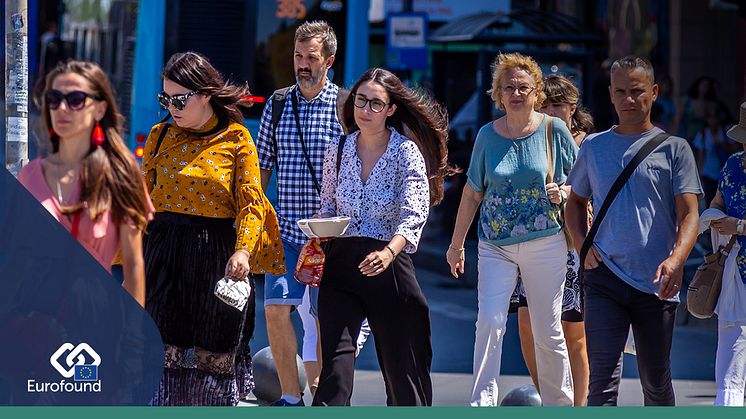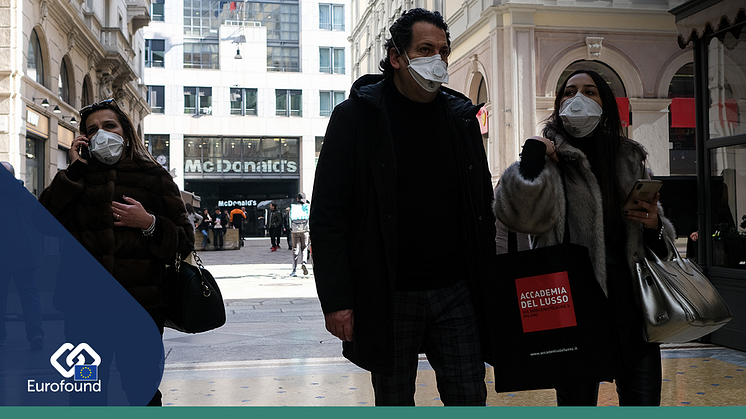
News -
Decreasing levels of perceived tensions in society in Greece could help offset some of the impact of COVID-19
The onset of the COVID-19 pandemic has thrown societies around the world into flux and threatens to undo some of the positive progress that has taken place in recent years. However decreasing levels of societal tensions, such has been the case in Greece, may be a positive indicator of strengthening solidarity in society which is important in these difficult times. Greece has shown signs of improvement in living and working conditions in recent years with an increase to the overall employment rate, decreases to the share of early school leaving and levels of perceived tensions in society dropping to below EU averages.
Eurofound’s research shows that, although the unemployment rate remains high in countries that were worst affected by the recession, Greece has made progress in this respect, with the level of unemployment decreasing by more than five percentage points in the period from 2012 to 2018. There have been increases to the overall employment rate, with the largest increase observed in the share of women joining the labour market. This has in turn led to a reduction in the gender employment gap – a trend observed in many countries that initially had higher-than-average gender gaps and have consistently caught up with EU averages. In terms of the quality of jobs that have been created in recent years, research shows that recent employment growth in Greece has tended to occur in mid-paid or mid-low-paid jobs, leading to distinctive ‘growth-in-the-middle’ employment shifts since 2016.
As the economic situation has slowly improved, the level of tension in society has started to decrease, after much fluctuation during the economic crisis. The European Quality of Life Survey shows that in 2007 36% of respondents reported ‘a lot of’ tension between poor and rich people which had increased to 52% by 2011. This figure more than halved between 2011 and 2016, dropping to 25% which brought Greece’s perceived level of tension between rich and poor to below the EU average of 29%. Similar trends were observed in the perceived tensions between different racial and ethnic groups with 36% reporting ‘a lot of’ tension in 2007, which increased to 47% in 2011, and later decreased to 31% in 2016 to below the EU average of 41%.
Although Greece was initially one of the worst-performing countries in terms of early school leaving, Eurofound’s research on Convergence and the Pillar of Social Rights shows that Greece has managed to catch up with many of the best-performing countries in this regard, reducing the share of young people leaving education early from 14.4% in 2008 to 4.7% to 2018. Furthermore, the share of people aged 30-34 with tertiary education sits above the EU average. However, despite improvements to educational attainment, the situation for young people remains difficult with youth unemployment continuing to be well above the EU average.
Overall the research shows that Greece has been making steady progress in recent years leading to improvements in the level of labour market participation, particularly the inclusion of women, decreasing levels of early school leaving and most notably a sharp decrease to the levels of tension in society, which fell to below the EU average in 2016, and may stand as a positive indicator of strengthening solidarity in Greek society as it faces the challenges ahead.
Eurofound has been monitoring and reporting on living and working conditions in Greece, in comparison to other EU Member States, since before accession to the EU in 1981.
Read more:
Publication: Upward convergence in employment and socioeconomic factors
Policy brief: A more equal Europe? Convergence and the European Pillar of Social Rights
Publication: Shifts in the employment structure at regional level
Publication: European Quality of Life Survey
Country profile: Living and working conditions in Greece




